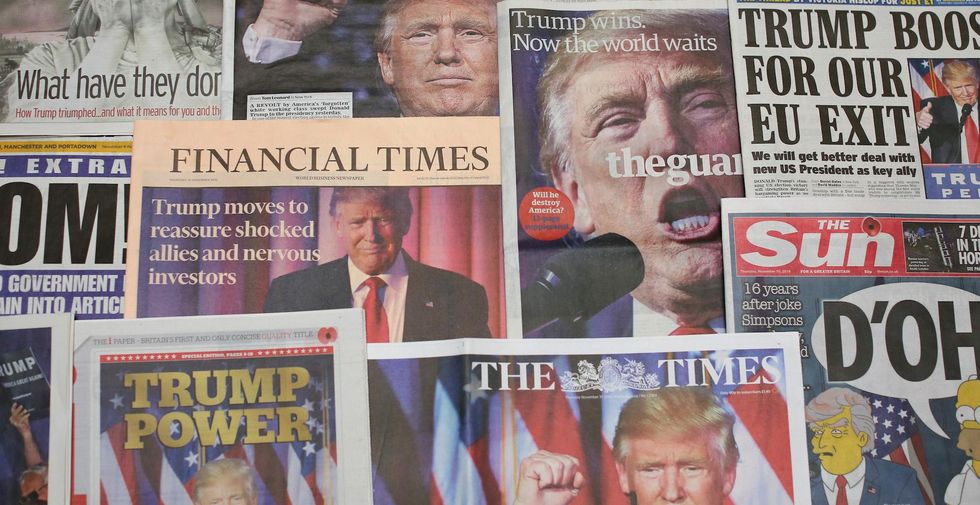
Dan Kitwood/Getty Images

Researchers at the University of Cambridge are considering a "vaccine" to combat fake news.
Just as being exposed to a small concentration of bacteria can aid the immune system in fighting disease, Cambridge scientists suggest in a new study — "Inoculating the Public Against Misinformation About Climate Change" — that "pre-emptively exposing" readers to a small "dose" of misinformation can help outlets cancel out the impact of fake reports.
In the study on fake news, which the researchers characterize as "misinformation," lead author Dr. Sander van der Linden and her colleagues sought to determine the impact bogus information is having on readers, particularly when it comes to global warming.
The goal of the study was to determine how to stop misinformation from distracting readers from accurate information. In the end, the Cambridge researchers determined that news outlets providing readers with a warning — or an "inoculation" — about fake reports actually helps bolster correct reports.
"Misinformation can be sticky, spreading and replicating like a virus," van der Linden said. "The idea is to provide a cognitive repertoire that helps build up resistance to misinformation, so the next time people come across it, they are less susceptible."
The Cambridge scientists made a somewhat ironic decision when they chose to base the study on global warming, given there are two very different yet established narratives on the matter: Those who stand by the legitimacy of global warming science and those, of course, who reject it.
The study begins with the basic premise that "97 percent of climate scientists have concluded that human-caused global warming is happening," which van der Linden and her colleagues described as a "simple fact."
As for the "misinformation" used, the study touted as a "falsehood" reports that "there is no consensus among scientists" on global warming, an assertion the researchers cite from the Oregon Global Warming Petition Project, which boasts a petition signed by "over 31,000 American scientists" claiming there is no proof human activity is impacting climate change.
The study determined that by just presenting information and misinformation together as two opposing views, it dilutes the poignancy of the factually correct data in readers' minds.
"A new study compared reactions to a well-known climate change fact with those to a popular misinformation campaign. When presented consecutively, the false material completely cancelled out the accurate statement in people’s minds – opinions ended up back where they started," the study reads.
So, rather than just presenting the "consensus fact" alone, the study suggests offering an explanation as to why the countering information is untrue. Van der Linden and her colleagues refer to this as an "inoculation."
And there are two forms of "inoculation," according to the study. A "general inoculation," accompanied with the warning that "some politically-motivated groups use misleading tactics to try and convince the public that there is a lot of disagreement among scientists," and a "detailed inoculation," that specifically targets the credibility of those behind the misinformation.
In reports on climate change, the Cambridge study subjected more than 2,000 U.S. residents to the test and, according to van der Linden, the experiment worked.
"We found that inoculation messages were equally effective in shifting the opinions of Republicans, Independents and Democrats in a direction consistent with the conclusions of climate science," she said, adding, "There will always be people completely resistant to change, but we tend to find there is room for most people to change their minds, even just a little."
Fake news has become a major issue in the weeks since President Donald Trump won the White House. In the wake of heated criticism following the Nov. 8 election, Facebook has rolled out new features to combat fake news.
In mid-December, Facebook, which became a hotspot during the campaign for bogus news to spread, announced partnerships with mainstream news fact-checkers, such as PolitiFact, FactCheck.org and Snopes, to help quell the spread of fake reports on its site.